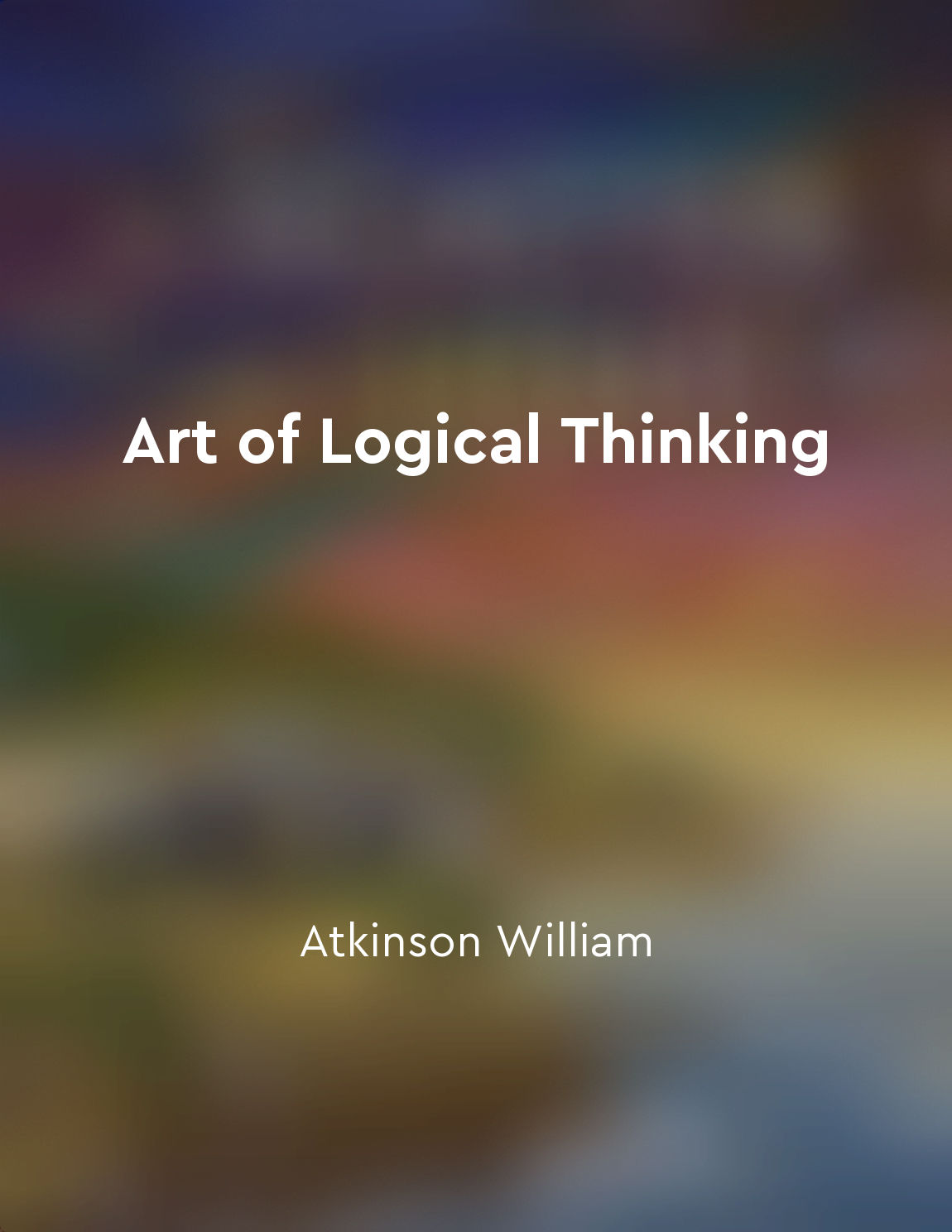Audio available in app
Valid arguments follow logical rules from "summary" of Art of Logical Thinking by Atkinson William
To understand the concept that valid arguments follow logical rules, we must first grasp the fundamental principles of logic. Logic is the science of reasoning, a tool that helps us make sense of the world around us by examining the relationships between different pieces of information. In logic, an argument is a set of statements known as premises that are put forward in support of a conclusion. The validity of an argument depends on whether the conclusion logically follows from the premises. If the conclusion follows logically from the premises, then the argument is considered valid. Logical rules serve as the guidelines that govern the validity of arguments. These rules ensure that the process of reasoning is sound and that the conclusions drawn are justified by the premises provided. By following logical rules, we can avoid making errors in our thinking and ensure that our arguments are well-founded. One important rule of logic is the principle of non-contradiction, which states that a statement cannot be both true and false at the same time. This rule helps us maintain consistency in our arguments and prevents us from arriving at contradictory conclusions. Another crucial rule is the principle of the excluded middle, which asserts that a statement must be either true or false, with no middle ground. This rule helps us make clear, definitive statements in our arguments and avoids ambiguity.- We can construct arguments that are coherent, consistent, and convincing. Logical thinking allows us to evaluate information critically, identify flaws in reasoning, and arrive at well-supported conclusions. Ultimately, understanding and applying logical rules is essential for developing sound arguments and making informed decisions.


